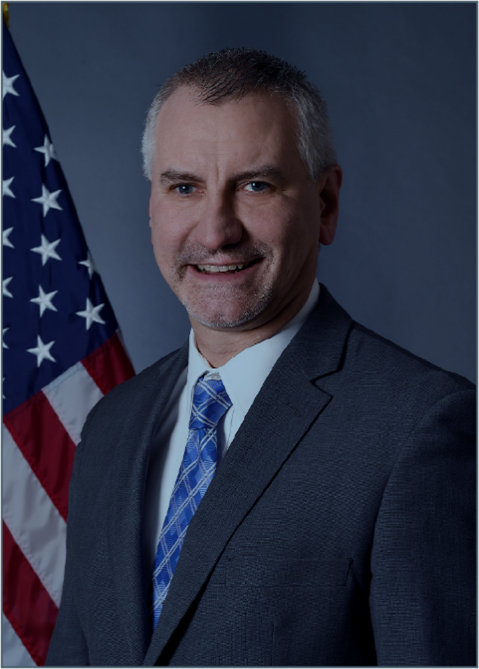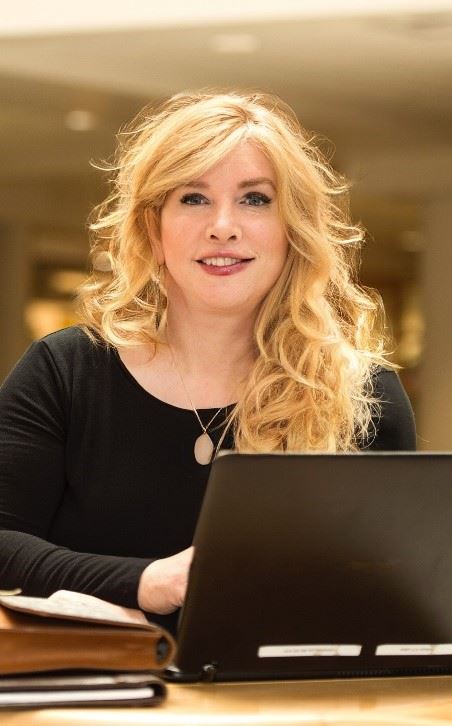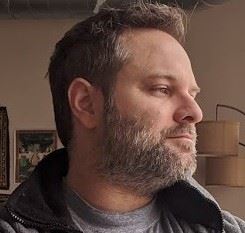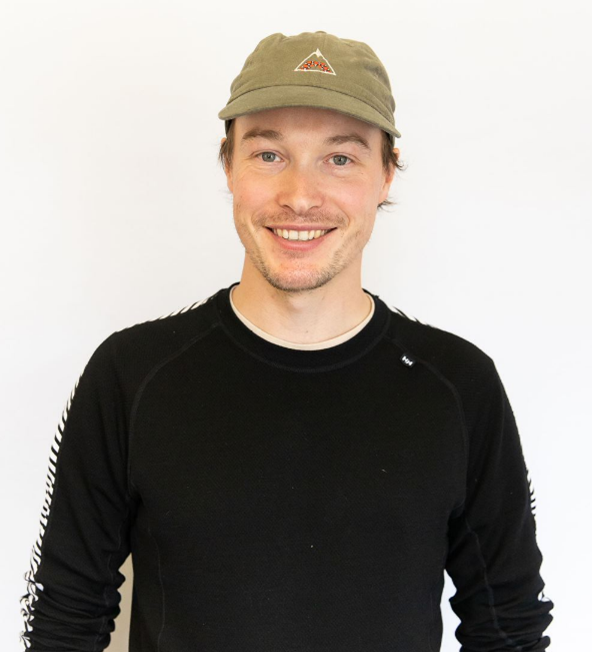Upcoming events
- No upcoming events
Details regarding our October Event: AFCEA, in cooperation with the TECHFORGE Foundation is hosting an Ideation and Innovation Forum panel discussion on the topic of "Issues, Challenges & Solutions in Quantum Computing". Experts from Industry, Academia, and Government will be present to present their thoughts on this topic and answer audience questions. The event will be a hybrid event with a live audience at the WBI 444 facility in downtown Dayton, OH, and simultaneously live streamed through the Wright Brothers Institute's collider program. We hope you come out and engage with us as we discuss one of the hottest topics in technology. MODERATOR:Robert Orenbaun
Robert is the Chairman of the Board of Directors for TECHFORGE Foundation a community driven charity that supports engagement in STEM education, learning opportunities in new & emerging technologies, encourages multidisciplinary collaboration, and funds research to enable knowledge and technology exchange and accessibility. https://www.techforge.foundation https://www.linkedin.com/company/techforge-foundation PANELISTS: Dr. Michael J. Hayduk
Dr. Hayduk was the Chief of the Computing and Communications Division, Air Force Research Laboratory, Information Directorate, Rome, New York from 2011 to 2019. The division’s mission is to lead the discovery, development and integration of affordable computing, networking and communications technologies for our air, space and cyberspace forces. Dr. Hayduk was responsible for defining, planning, budgeting, advocating, managing and irecting the execution of the research program and leads all aspects of personnel management within the division. Dr. Hayduk joined the Air Force through the Palace Knight educational program in 1991 and was assigned to Rome Laboratory. Upon completion of his graduate studies, he served as a research engineer where he developed ultrafast solid state pulsed lasers for optical communication systems. As a team leader Dr. Hayduk led the development of microwave photonic components and subsystems for use in radio frequency sensors. Dr. Hayduk became the acting Chief for the Electro-Optic Components Branch in 2005 in the AFRL Sensors Directorate which developed components and subsystems for advanced radio frequency and electro-optic AF sensor systems. In 2007 he became the Chief of the Emerging Computing Technology Branch in the AFRL Information Directorate which performs fundamental and exploratory research and development in nanocomputing, quantum computing, computational intelligence and optical computing for advanced computing architectures. Dr. Hayduk has published more than 50 journal and conference papers and holds one US patent. EDUCATION 1991 Bachelor of Science in Electrical Engineering, Clarkson University, Potsdam, NY 1993 Master of Science in Electrical Engineering, University of Virginia, Charlottesville, VA 1997 Doctor of Philosophy in Electrical Engineering, Cornell University, Ithaca, NY 2008 Air War College (correspondence), Air University, Maxwell AFB, AL Dr. Nella Grace Ludlow
She holds bachelor degree in Mathematics and Physics from Washington State University, Masters in Computer Science from right State University, a PhD in Artificial Intelligence from University of Edinburgh, Scotland, Post-Doctoral studies in Computer Science at University of Cambridge England, and Certification in Quantum Computing from Massachusetts Institute of Technology (MIT). She is a retired US Air Force officer having served as a Mathematician, a Pilot, an intelligence officer at NASIC, and was the Technical Director of Artificial Intelligence at AFRL. She holds ten patents. She also serves on the Scientific Working Group for Artificial Intelligence for the Federal Bureau of Investigation (FBI), on Canada’s equivalent to the NSF in a group called NSERC selecting quantum research funding for Canada, and the IEEE Standards Association working group for Quantum and Cybersecurity (SC10). She also has been CTO of a Microsoft-funded startup and CEO of two technical companies, taking one public on the New York Stock Exchange (NYSE). Dr. William N. Plick
From 2010 to 2014 he was a postdoctoral researcher working for Anton Zeilinger at the Institute for Quantum Optics and Quantum Information and the University of Vienna. Then from 2014 to 2016 he worked, also as a postdoc, for Eleni Diamanti and Damian Markham at the Grande Ecole Telecom ParisTech and CNRS in the now-defunct Information Processing and Communications Laboratory (LTCI). During both positions he was a theorist working closely with experimentalists on projects relating to entanglement of different states of light. In Fall 2016 he joined the faculty of the University of Dayton as an Assistant Professor where he has continued his work on optical implementations of quantum technologies. Dr. Pete Shadbolt:
After earning his PhD in experimental photonic quantum computing from the University of Bristol in 2014, Pete was a postdoc at Imperial College researching the theory of photonic QC. During his time at Bristol, he demonstrated the first-ever Variational Quantum Eigensolver and the first-ever public API to a quantum processor. He has been awarded: the 2014 EPSRC “Rising Star” by the British Research Council; the EPSRC Recognizing Inspirational Scientists and Engineers Award; and the European Physics Society Thesis Prize. A listing of Pete’s published research can be found on Google scholar.
Click here to review slides from our 10 March 2021 Dayton-Wright AFCEA Ideation and Innovation Forum Featuring:
|
UPCOMING EVENTS
|

 Robert is the Founder and CEO for a veteran owned technology startup, an entrepreneur, cyber evangelist, and supporter of social activism in K-12 education and STEM. His career has spanned the gamut from 1-person startups & incubators, small businesses to Fortune 100 companies! He loves education, technology, sharing ideas, mentoring young entrepreneurs, and meeting people with the same passion and energy to change the world. Robert works with all levels of stakeholders from front line engineers to Fortune 100 C-level executives and Generals.
Robert is the Founder and CEO for a veteran owned technology startup, an entrepreneur, cyber evangelist, and supporter of social activism in K-12 education and STEM. His career has spanned the gamut from 1-person startups & incubators, small businesses to Fortune 100 companies! He loves education, technology, sharing ideas, mentoring young entrepreneurs, and meeting people with the same passion and energy to change the world. Robert works with all levels of stakeholders from front line engineers to Fortune 100 C-level executives and Generals. Dr. Michael J. Hayduk is the Deputy Director, Information Directorate, Air Force Research Laboratory, Rome, New York. Dr. Hayduk plays a key role in overseeing an annual budget of over $1.8 billion, leading the activities of over 1,200 scientists, engineers, administrative and support personnel. He is also responsible for coordinating AFRL’s Quantum Information Science research portfolio spanning six technical directorates. Dr. Hayduk was instrumental in the formulation and stand-up of the Innovare Advancement Center which is the open innovation technology hub located just outside of the security perimeter of the Information Directorate. Dr. Hayduk continues to lead the development of strategic partnerships at Innovare.
Dr. Michael J. Hayduk is the Deputy Director, Information Directorate, Air Force Research Laboratory, Rome, New York. Dr. Hayduk plays a key role in overseeing an annual budget of over $1.8 billion, leading the activities of over 1,200 scientists, engineers, administrative and support personnel. He is also responsible for coordinating AFRL’s Quantum Information Science research portfolio spanning six technical directorates. Dr. Hayduk was instrumental in the formulation and stand-up of the Innovare Advancement Center which is the open innovation technology hub located just outside of the security perimeter of the Information Directorate. Dr. Hayduk continues to lead the development of strategic partnerships at Innovare. Dr. Nella Ludlow is the Director of Quantum Computing and a Research Professor of Computer Science at Wright State University, and an Adjunct Full Professor of Mathematics at Washington State University. She has also taught at the University of Washington, the Naval Postgraduate School, and the University of Cambridge, England.
Dr. Nella Ludlow is the Director of Quantum Computing and a Research Professor of Computer Science at Wright State University, and an Adjunct Full Professor of Mathematics at Washington State University. She has also taught at the University of Washington, the Naval Postgraduate School, and the University of Cambridge, England. Dr. Bill Plick (University of Dayton) received his Ph.D. in Physics from Louisiana State University in 2010. His Ph.D. advisor was Jonathan Dowling.
Dr. Bill Plick (University of Dayton) received his Ph.D. in Physics from Louisiana State University in 2010. His Ph.D. advisor was Jonathan Dowling. Dr. Pete Shadbolt is a co-founder of PsiQuantum, a Palo Alto-based startup building a general-purpose silicon photonic quantum computer. As Chief Scientific Officer, Pete oversees the application and implementation of technology and scientific related policies and procedures that are vital to the success of PsiQuantum.
Dr. Pete Shadbolt is a co-founder of PsiQuantum, a Palo Alto-based startup building a general-purpose silicon photonic quantum computer. As Chief Scientific Officer, Pete oversees the application and implementation of technology and scientific related policies and procedures that are vital to the success of PsiQuantum.

